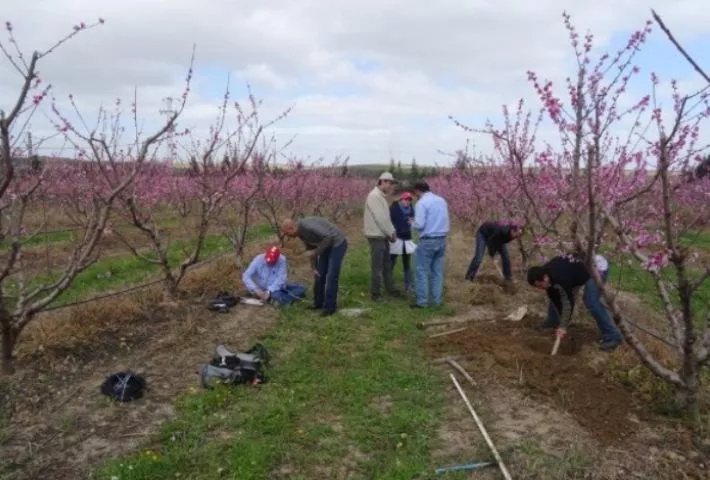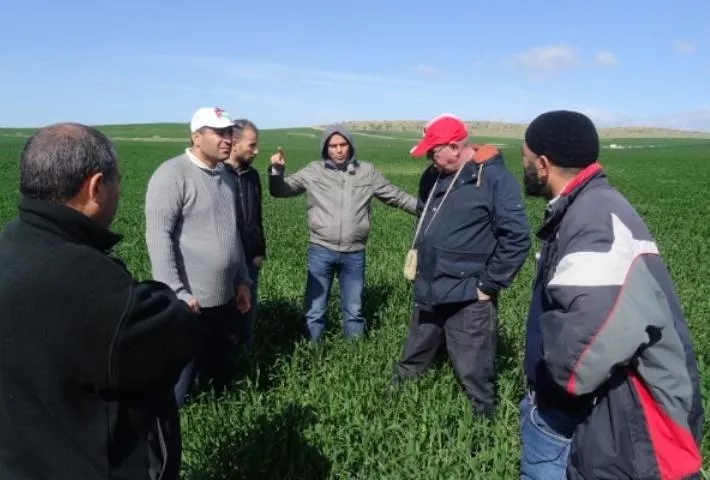Application of near-real time monitoring systems for irrigated agriculture in MENA
Problem Overview
Irrigated agriculture is a major user of water resources in the MENA region, often accounting for most of the water diverted and consumed. Within the various irrigated production systems in MENA, there is often potential for substantial improvement at the farm level. Monitoring crops and their environments is a powerful tool to improve on-farm irrigation management. Electronic sensors that measure soil water content, salinity, leaf water potential and sap flow (transpiration) can assess water status and flow through the entire continuum of soil, plant and atmosphere. When combined with data loggers and remote communication via cellular networks, they add a new dimension to irrigation management by enabling near-continuous and near-real-time remote monitoring that can substantially improve irrigation water use. The technology is implemented and evaluated in five countries (Jordan, Oman, Tunisia, UAE and Yemen) in a variety of environments (22 locations), production systems and scales, in cooperation with the private sector and national research and outreach systems. Besides direct use, it will support other technologies, including computer modeling and weather-based irrigation scheduling. The targets are better irrigation management, quantitative data supporting enabling policies, and capacity building. The project is funded under grant PR&D 06-01, Prime contract/TO AID-OAA-TO-11-00049 between DAI and ICBA in the context of USAID MENA Network of Water Centers: Further Advancing the Blue Revolution Initiative.
Project Description
- Introduce innovative approaches to irrigation water conservation and productivity using accurate near-real-time measurements of water in the soil-plant atmosphere continuum
- Build scientific and technological capacity in irrigation management in the stakeholder community (agribusinesses, farmers’ associations, and women) to support existing programs, policies, and incentives for water conservation
- Promote and enable networking and operational knowledge and data sharing between scientists, extension services and support staff in MENA by creating platforms and communities of practice supported by the private sector
- Provide opportunities, tools, and networks for new graduates and students to enhance their competitiveness in the job market, and foster entrepreneurship to enable self-sustaining continuity and advancement after completion of the project
Research Innovation Theme
Water Productivity and Conservation, Further Advancing the Blue Revolution Initiative
Downloadable files
Duration
January 2014 - January 2016
Project Lead
Project Region
Near East and North Africa
Project Countries
Jordan
Oman
Tunisia
United Arab Emirates
Partner(s)
ICT, DAI, USAID, NCARE, SQU, INRGREF, and WEC.
Stakeholders: 11 agribusinesses, 5 farmers and women associations, 3 outreach institutions and 4 policymakers.













